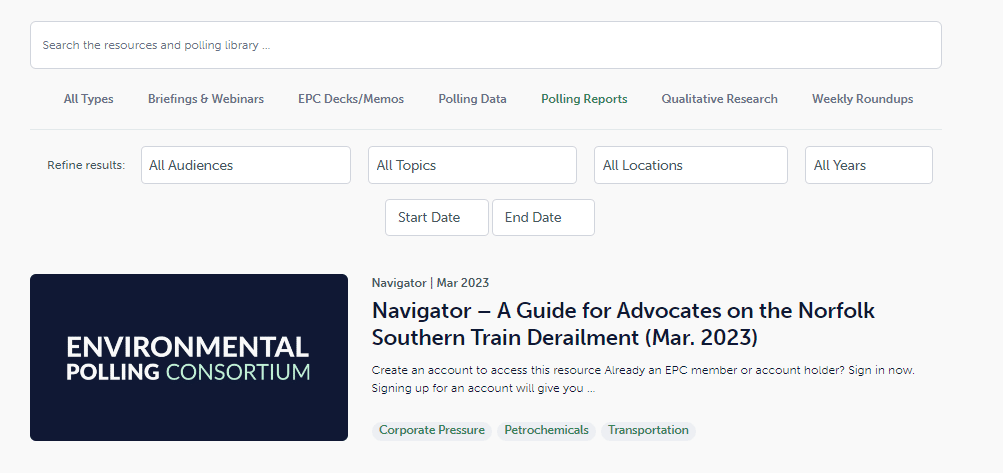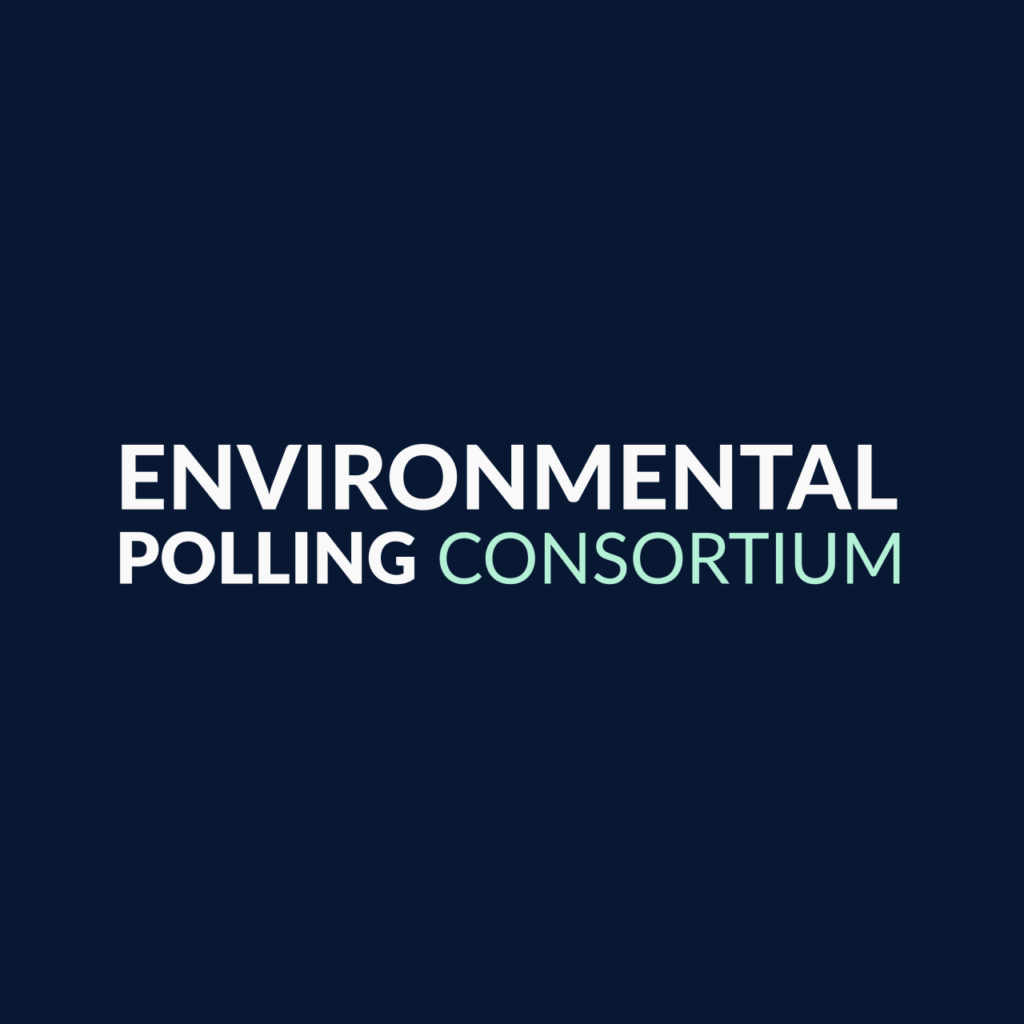
How environmental advocates can utilize – and share – polling
David Gold and Leah Zamesnik
David Gold and Leah Zamesnik operate the Environmental Polling Consortium (EPC), a centralized hub for environmental advocates’ public opinion research needs. By collecting, distributing, and interpreting polling data on climate and environmental issues, the EPC works to make research more accessible and to democratize data across the movement. This blog post highlights how public opinion research can be a tool for environmental advocacy.
Polling and other forms of public opinion research are powerful tools for social movements, as they allow advocates to understand the public’s knowledge and attitudes on issues, help calibrate campaign messaging and communications strategies, and enable movements to track their progress in raising awareness and shaping public opinion towards their goals.
An additional important benefit of polling as a movement tool is that policymakers are eager consumers of polls. Elected officials, for example, have to be responsive to public opinion to some degree because their jobs depend on it. Some of the common ways that we’ve seen environmental advocates utilize public opinion research to enhance their work include:
- Identifying persuasive messaging frames. Polls consistently show that messaging about public health is one of the most effective ways to increase support for climate action and environmental protection.
- Choosing more effective words and terminology. Research shows that people feel less positively about gas as a fuel source when we call it “methane gas” or “fracked gas” rather than “natural gas.”
- Determining the strongest policy proposals to emphasize. During negotiations over the Inflation Reduction Act, polling showed that voters of all partisan affiliations supported provisions to invest in clean energy production and jobs.
- Understanding knowledge gaps and misperceptions. Much of the public incorrectly believes that natural gas is a “clean” source of energy.
- Putting pressure on policymakers. One very helpful tool for this is the Climate Opinion Maps maintained by The Yale Program on Climate Change Communication, which provide localized data on climate change beliefs and policy support down to the county and district level. Advocates can bring this data to policymakers at all levels to show that their constituents want climate action.
This research yields a bounty of useful data and insights for advocates. Unfortunately, data is not always shared across organizations. Additionally, the findings that do get shared are a challenge to sift through – especially for smaller groups that don’t have the staff capacity to keep up with new polling or make it actionable in their work.
The Environmental Polling Consortium was created with these kinds of challenges in mind. Our work is grounded in the idea that advocates don’t need to be polling experts in order to utilize polling as a tool. With easy access to polling data and analyses that explain how to put it into action, we hope that advocates can use the EPC’s resources to add another dimension to their advocacy.

We work to make environmental polling more accessible to advocates in several ways, including:
- Collecting and housing environmental polling documents in a centralized resource and polling library that is searchable by keyword, topic, audience, and geography.
- Summarizing new public polls and pulling out key insights for environmental advocates in weekly email roundups.
- Providing forums for organizations to share their poll findings with allies, such as the quarterly community poll briefings that we host.
When looking across the variety of polling projects conducted by environmental groups we have identified some important gaps in the existing research. This includes a lack of polling that focuses on environmental attitudes among people of color. Standard national polls often don’t obtain enough interviews to accurately measure attitudes within racial and ethnic subgroups. We’ve been encouraged to see partners such as Green 2.0 working to fill this gap by conducting new polling that makes sure that voters of color are accurately represented.
We recommend more partners commission these types of projects so our movement can be more responsive to the needs of the communities of color on the front lines of the climate crisis. Polling is one of the most powerful accountability tools we have, and that extends from policymakers to our own movement.
Whichever environmental issues or specific audiences you focus on, we hope that you share your findings with allies in the environmental community. The more organizations share their research findings with the rest of the movement, the more impactful research can be in helping our movement achieve its shared goals.

Learn more about the EPC at our website and get in touch with any polling questions.